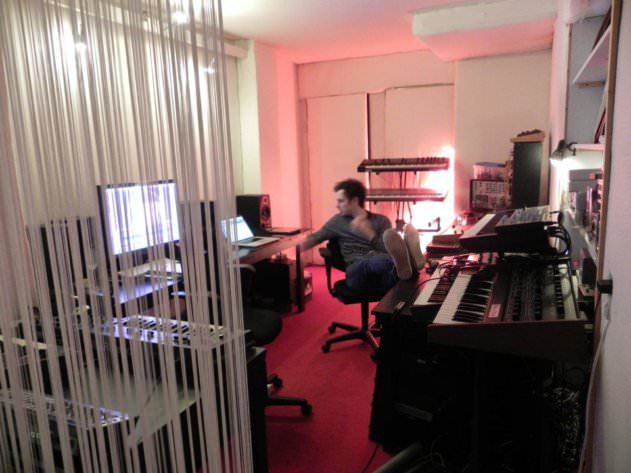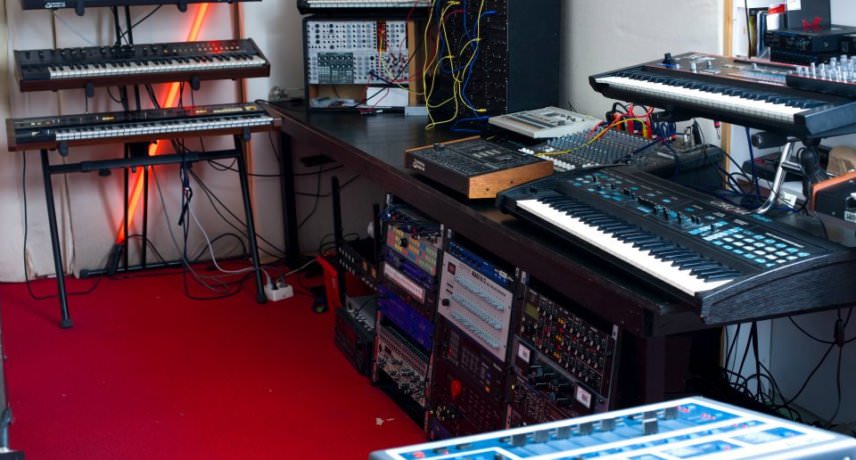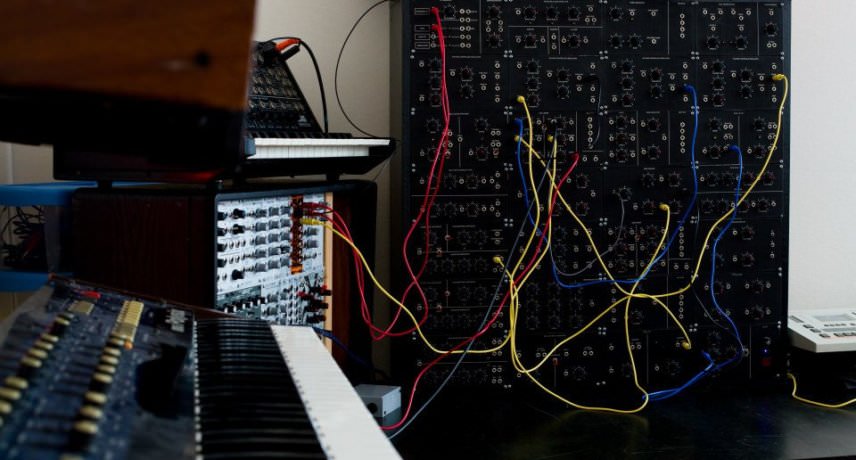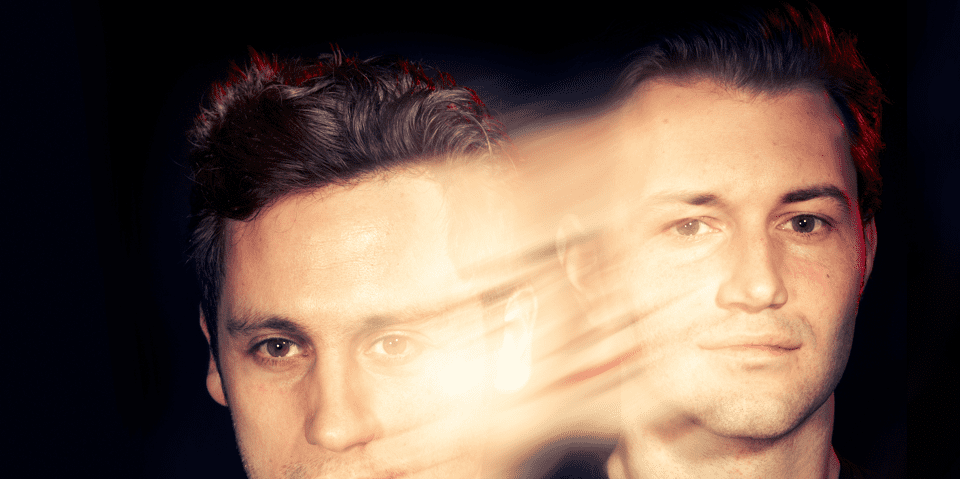
Iason Chronis at work in Mason’s studio
You worked with two hip hop legends: DMC and Kurtis Blow. Are you both hip hop fans?
Coen: Yeah we both listened to lots of hip hop when we were teenagers. Mainly the west coast stuff, but also bands like Beastie Boys had a great impact on our music. It was quite surreal to finally be working with these legends. Iason actually started his DJing with hip hop records in the early 90s. There’s a lot of great fresh hip hop in the Netherlands at the minute, actually. It’s probably the most original branch of music from the Netherlands in our opinion. Not sure you’d enjoy it as it’s all in Dutch…
Go on, give us some recommendations!
Coen: OK. De Jeugd Van Tegenwoordig are awesome and super original. Also be sure to check out The Opposites and Opgezwolle.
Does hip hop influence your music in any way other than vocal collabs? What other kinds of music influence what you do?
Iason: It’s more the funk side of some hip hop that influenced us. I used to play loads of that type of Dr Dre-ish hip hop in the early 90s. Coen has a funk and rock background, as he was a singer in a whole bunch of bands. I suppose Coen’s a bit more pop-influenced, while I’ve been DJing mainly house records for the last 17 years. While crate digging we like to check a lot of electronic funk and disco records, and that reflects in some of our records.
You’ve been involved in the dance music scene for quite a long time now. How have you seen it change over the last decade or so?
Iason: It’s cool that you don’t need big budget studios any more to make music sound professional. It’s also good that records are available now to everyone everywhere around the world with an internet connection. Personally we miss the weekly record store shopping trips; they made the scene more social and those trips played a big part in our lives until recent years.
Apart from that: as the record industry had such a financial blow, record companies have more or less quit investing in talent and artist building, and are becoming extremely conservative by not taking risks any more. Budgets are spent on the safe big names, and smaller guys have to do the work themselves to surface. This is one of the reasons we started our Animal Language label a few years back, so we didn’t have to be solely dependent on others to put out our records.
With record companies not taking so many risks, do you think you’d be forced to do things differently if you were just getting started in music now?
Iason: You can’t do much more than make your music as original and as good as possible, then get as many people as possible to hear it. At the end of the day it’s that simple.

Mason’s Studio
Mason’s studio is built around a mixture of digital and analogue gear. The heart of the sequencing and recording setup is a Mac running Logic with an Apogee Ensemble interface. Vintage goodies include a Sequential Circuits Prophet 600, Korg MS-20 and PolySix, Roland Juno-60, E-mu SP-12 and the ultra-rare Fender Rhodes Chroma Polaris.



Mason’s Modular
Coen in particular is a huge fan of modular synths. The small Doepfer setup on the left in this photo is dwarfed by the collection of DIY Eurorack format modules on the right. All of the CV-controlled analogue gear can be sequenced and programmed using Expert Sleepers’ Silent Way software.
Check Mason out on Facebook, Twitter and their own website. They Are Among Us is out now on Animal Language.
